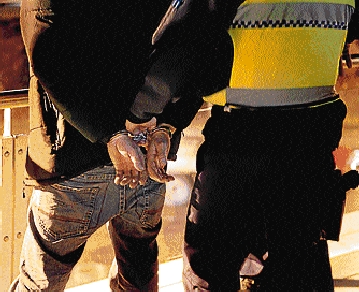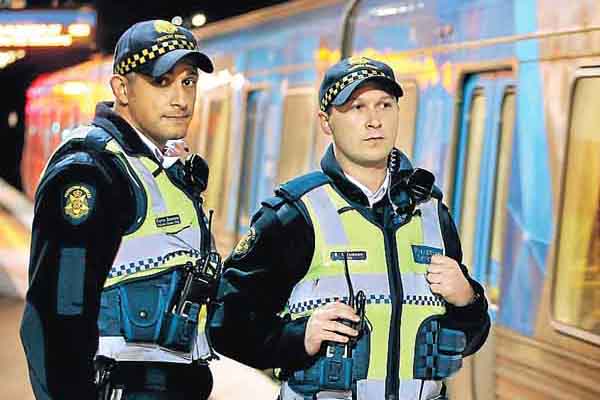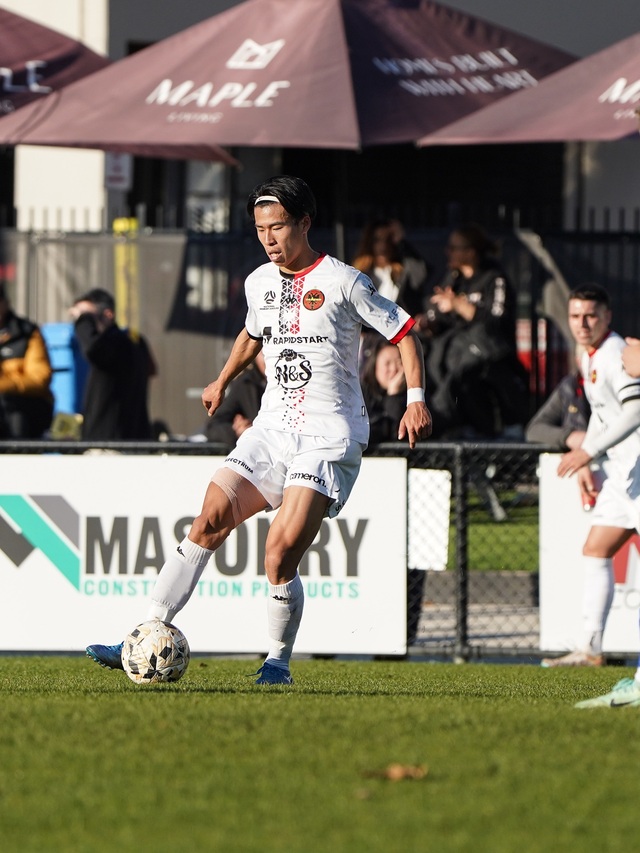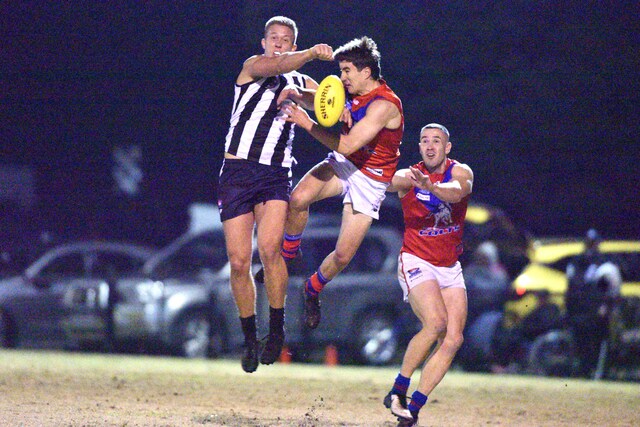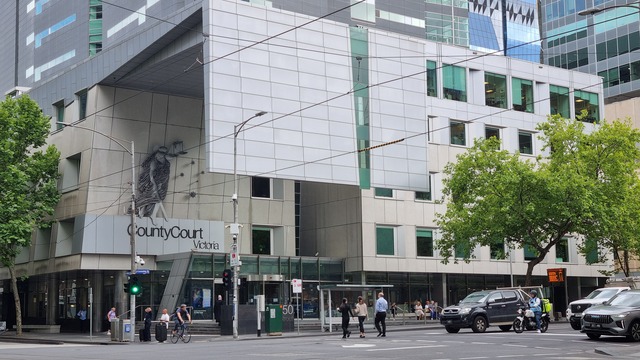While many commuters are waiting for protective services officers at their local railway station, police say PSOs have virtually wiped out crime at Dandenong station within weeks. CAMERON LUCADOU-WELLS followed two PSOs to see how they deal with the reputed trouble spot. Pictures: ROB CAREW.
IT’S late on a Friday night. A train commuter tweets: “The next station is Dandenong. Tell my mother I love her.”
Another tweeter gags: “Place your bets now: A. Assaulted B. Robbed C. Raped D. Slashed.”
Such jokes about Dandenong railway station’s reputed lack of safety may soon fall flat.
Trouble has seemingly left the station since protective services officers – armed guards who have trained at the Victoria Police Academy – started patrolling the station on May 29.
For three consecutive weekends in June, there were no reported assaults or robberies at the station and its surrounds during the PSOs’ shifts.
Inspector Bruce Kitchen describes it as “a massive reduction in crime” – an 80 per cent reduction at the railway precinct in June.
The station vigils will gradually spread across Melbourne railway stations in the next two years; the state government plans to deploy PSOs at Noble Park, Box Hill and Epping in coming weeks. Frankston and Springvale PSOs are expected before the end of the year.
The Weekly joined Ben Huismann and Pierre Devienne, two of five protective services officers who rotate shifts at Dandenong station from 6pm to the last train.
Huismann and Devienne patrol the station with a cool confidence that belies 12 weeks of training and four months on the job, including a three-month supervised stint at Melbourne CBD stations. The PSOs’ uniform is closely modelled on a regular police kit. Each officer is armed with capsicum spray, a stun gun and a pistol.
People often mistake them for police. On a couple of occasions, mothers scold excitable children as the PSOs walk past. “There’s the coppers!” a boy yells out. “Hey, stop that,” his mother tells him.
Devienne says it’s quiet this particular Thursday night but, soon after 6pm, the PSOs grab the details of a man smoking under a causeway roof – a prohibited area for smoking.
A radio check reveals he is wanted allegedly stealing from a Frankston bottle shop.
As the night chill descends, Huismann and Devienne wait with the man, who has another smoke – this time legally. Police arrive and take the handcuffed man to Dandenong police station for questioning.
Devienne says that often a person’s misdemeanour, such as smoking in a prohibited area, uncovers a more serious track record.
He tells of a girl who was smoking at the station recently. There were three outstanding warrants for her arrest.
Later in the night, the unpredictability of their task is underscored. Devienne asks a mother to butt out as she sits under a bus shelter with her daughters. “F… off. How dare you tell me to put out my smoke in the cold?” she screams.
Despite the withering reaction, the job is a welcome change of pace for the two PSOs: Huismann used to work in sales and marketing, Devienne as a hotel duty manager. They both hope to become fully fledged police officers.
The peak hour is suddenly over. The throngs of commuters thin and the groups that linger at bus stops become more obvious.
Devienne says loitering groups are the first signs of trouble. Routinely, the PSOs quickly snuff out the potential for trouble.
The best approach is to “move them on”, Devienne says. “By letting them stay here, it may escalate to something else.”
Has there been any violence? “Since I’ve been here there’s been nothing,” Devienne says. “If things escalate, we can get back-up – the crew from Dandenong will be here very quickly.”
The PSOs regularly do a “social welfare” chat with a group of children who linger at a dimlylit bus stop at night.
One of them, 12-year-old Keysborough boy Kenny, tells the Weekly he likes how the PSOs are there to look after everyone. “They tell us just to be good, don’t get into trouble.”
The PSOs get a call-out to a bus stop where a man is suspected of being drunk. Devienne talks to the man, who says he’s on medication for schizophrenia. Devienne asks for his identity and he roars in defiance: “What did I do wrong?”
Devienne doesn’t get sucked in. He keeps calm and asks the man’s companion where the man is living. He asks the man if he’s been drinking. The man replies: “I’m not drunk. I don’t drink. There’s too much violence with alcohol.”
The man’s companion assures Devienne he’ll look after him, is apologetic over the outburst and leads him away from the railway precinct.
Devienne turns his attention to two young males with soft drink bottles. He asks them what they are drinking. They are sober but cheeky. “Do you want to try a drink?” one retorts.
The PSOs hand out an average of 20-25 infringement notices at weekends. They are for minor offences such as smoking in a restricted area, drunkenness, bad language and conduct and possessing an open container of alcohol.
The PSOs may call in Dandenong police to detain drunks – a chance to sober them up and ensure they get home safely. “It’s part of our duty of care,” Devienne says.
Troublemakers seem to have shifted to neighbouring stations in the meantime. Inspector Kitchen says there has been an increase in “activity” at Springvale and Noble Park stations since the PSOs started at Dandenong and says “Noble Park and Springvale are still concerns”.
Inside the station, all seems to run like clockwork. Commuters wait and depart without anxiety. Most say they are glad the PSOs are here. Railway staff say their presence has driven away the “riff raff” and made their jobs easier.
A Metro Trains staff member says he wanted to apply to be a PSO. “Who wouldn’t want to have a gun on their thigh?” But he concedes he wouldn’t want to take a pay cut to take the job, with a starting pay of $50,548.
Huismann says he feels a reward from helping protect others at the station, to make them feel safe. “That’s what we’re here for. The majority of commuters just want to get home safely.”

